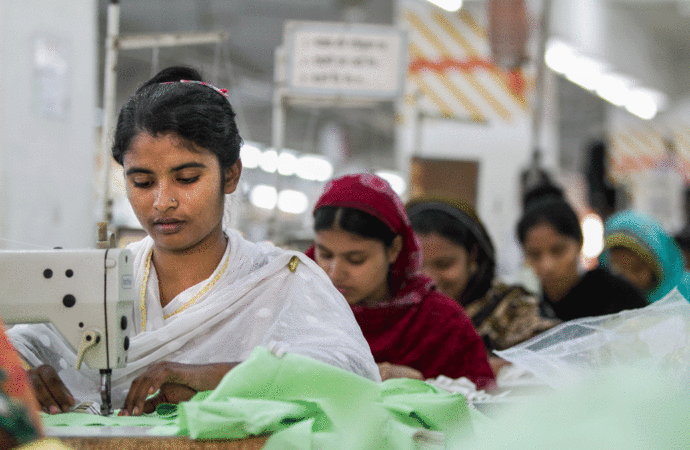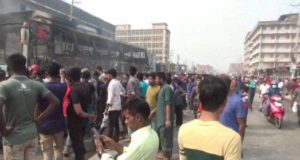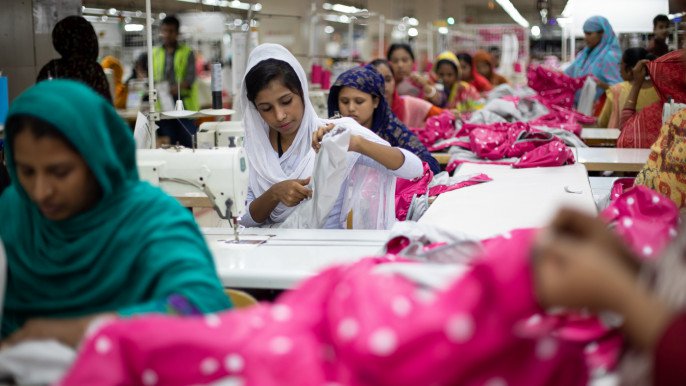Published in Dhaka Tribune on February 25, 2018

Photo: Rajib Dhar/ Dhaka Tribune
Inclusion of living wage in the minimum wage structure can help set a rational pay for the readymade garments (RMG) workers in Bangladesh, the experts say.
Researchers and trade union leaders came up with the remarks on Saturday, while talking about a study titled “Moving towards Living Wage: What will it take?”
The study, which is a part of a CARE project, was conducted by the South Asian Network of Economic Modeling (SANEM).
The speakers also suggested considering the number of dependent family members of a worker and his or her needs for food, housing, healthcare, small saving, and children’s education while fixing the amount of monthly wage.
Research Director of Centre for Policy Dialogue (CPD) Khondokar Moazzem said: “Since, the living wage is not in the law, the stakeholders should keep in mind the living costs of the workers while fixing the minimum wage.
“If it is done, wages will increase step by step in every wage declaration and ultimately help in getting close to the living wage.”
He also urged the stakeholders to consider the concept of family instead of individuals while setting the wage for garment workers.
As per Asia Floor Wage Alliance, living wage should allow a garment workers to bear the expenses of rent, healthcare, clothing, transportation and education for themselves and their families.
The wage should allow the workers to pay for themselves, and also have a small amount of savings.
Speaking on the occasion as chief guest, Palli Karma-Sahayak Foundation (PKSF) Chairman Dr Qazi Kholiquzzaman Ahmad said: “The monthly wage has to be determined in a way that a humanly dignified living for the workers can be ensured.”
“Setting a rational minimum wage in the RMG sector has always been a challenge in Bangladesh. We can get to living wage by continuously pushing minimum wage up,” said Selim Raihan, who presented the study findings in the program.
Selim said moving from minimum wage to living wage will require a major change in the policy.
He emphasized on improving the business environment to ensure the competitiveness of the RMG industry in Bangladesh.
He also suggested providing workers with some non-money benefits like rationing, education and housing facility.
The study finding showed that present minimum wage in Bangladesh garment industry is below the poverty level, making it very difficult for the workers to bear their living cost.
Selim mentioned that the existing minimum wage is not enough to maintain the minimum standard of life for a worker, which incorporates food, clothing, house rent, education, health, entertainment, savings etc.
“Wage should help the workers lead a decent life with his or her dependent family members,” Bangladesh Institute for Labour Studies executive director Syed Sultan Uddin Ahmed said.
 CPD RMG Study Stitching a better future for Bangladesh
CPD RMG Study Stitching a better future for Bangladesh



